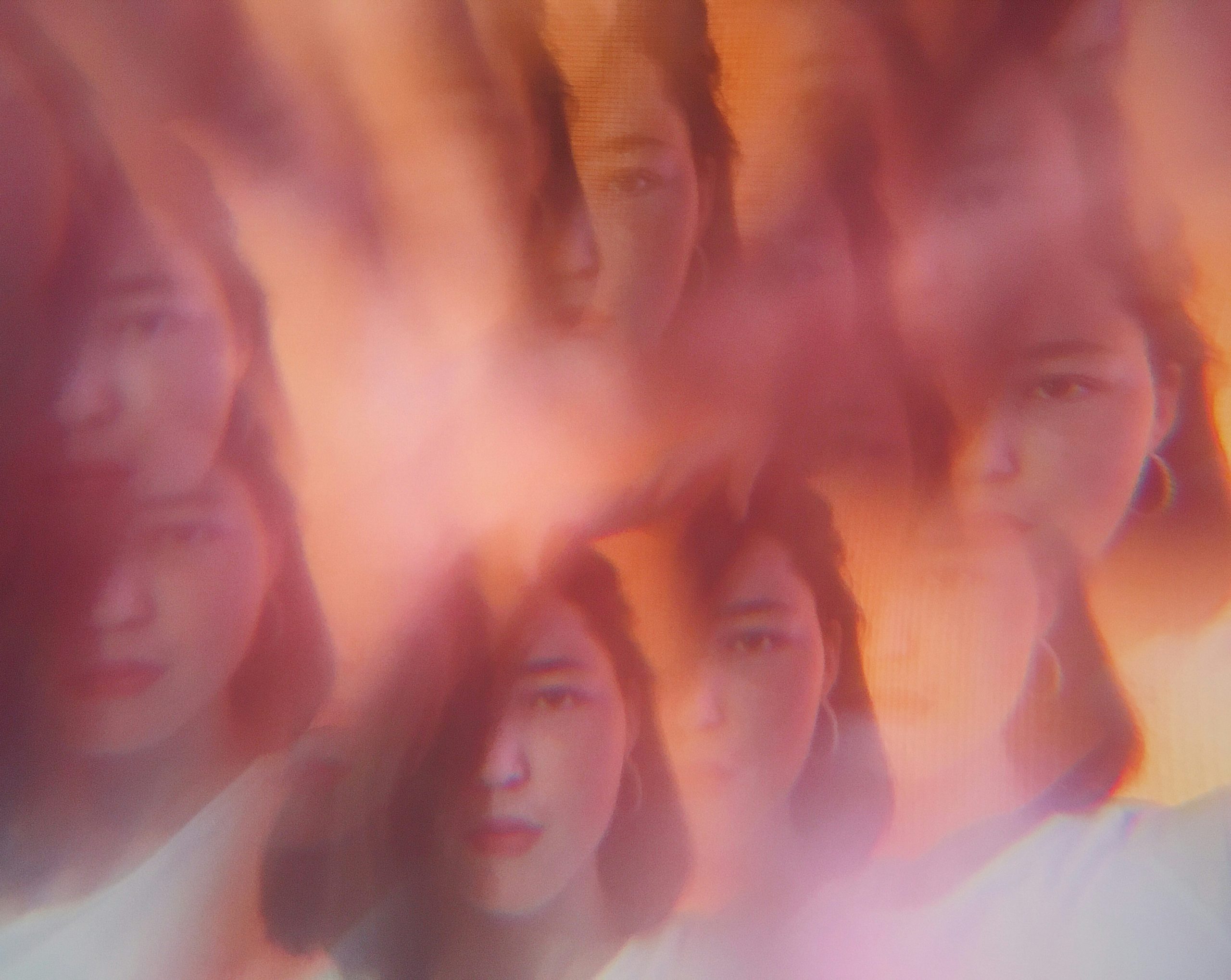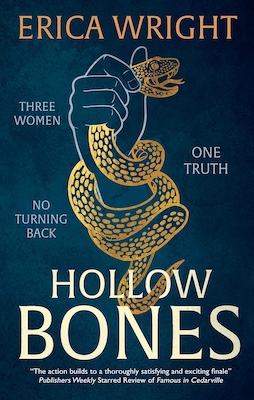Novels with multiple points of view aren’t telling one story, but many. They appreciate an important life principle: anybody can be a hero given the right opportunity. Even when focused on the same event, each recollection is different, tinted by each person’s experience and knowledge. These perspectives might corroborate or contradict, add another dimension, form a more complete story, or even alter the meaning of an event. There’s a delicious thrill in deciding who’s telling the real version—or if such a version exists at all.
When I started working on my Shakespeare-inspired mystery Hollow Bones, I wanted to tell Isabella’s story in a contemporary setting, but after finishing that draft, it felt incomplete. It took me months to finally realize that this wasn’t just Isabella’s story. This was a tale of three women and how their lives are changed by one fire.
These seven novels below all feature multiple women with their own versions of events. They cover a wide range of genres, from historical fiction to psychological suspense. One might even be called prose poetry. They are all generous, though, in the way they elevate their characters, including the quiet ones who might be easily forgotten in real life. In these books, each thread adds an important element to the page, complicating what we think we know, to eventually become a tapestry that holds the entire story together.
The Arctic Fury by Greer Macallister
In 1845, explorer Sir John Franklin attempted to chart the Northwest Passage, but he and his ship were lost. In response, his wife Lady Jane Franklin funded several expeditions in hopes of bringing her husband home. In Macallister’s vivid imagination, one of those expeditions is composed of twelve exceptional women. Unfortunately, they don’t all return, and their leader Virginia Reeve is put on trial for murder. What happened out there on the ice? All twelve women share parts of the story, which creates both an entertaining and moving account of their tragic adventure.
The Bennet Women by Eden Appiah-Kubi
I appreciate retellings that go beyond the source material, probing new questions and exploring new possibilities. Appiah-Kubi does this well, offering sharp cultural insights with a light touch. In The Bennet Women, we meet EJ, a residential advisor for an all-girls dorm, although residents are fined a quarter if they call themselves “girls” instead of “women.” Her chapters alternate with (mostly) ones from Jamie, a transgender woman who’s transitioned and ready to indulge in some normal activities like shopping with her mom and dating somebody cute. She gets her wish in both regards, but of course, this wouldn’t be a retelling of Pride and Prejudice without some obstacles to those happily ever afters.
The Secret Place by Tana French
This is the fifth book in the Dublin Murder Squad series, and it almost seems as if French was challenging herself to do something different. Rather than a single detective’s perspective on events, this book has dual timelines, one the current police investigation and the other a year in the past. That year follows four friends at a posh boarding school. Their seemingly unshakeable bond is challenged when a boy at a nearby school is murdered. The book has all the elements of a straight-forward mystery: crime, investigation, and solution. But it deliberately goes beyond the case to offer a nuanced look at growing up. What changes us as we hurtle toward adulthood?
Madeleine Is Sleeping by Sarah Shun-Lien Bynum
This novel, composed of short vignettes, also uses dual timelines: one in the real world and one in a girl’s dream world. In Madeleine’s mind, she joins a circus, travels to Paris, and falls in love with a man given to excessive flatulence. Back in reality, Madeleine’s mother is at first pleased by the good luck that seems to accompany her daughter’s comatose state. Eventually, though, she mistreats her unconscious charge the way she mistreated her when awake. This book is bewildering, bewitching, and quietly devastating, especially as the two worlds start to overlap. If you like strange, dark, lyric tall tales, this one’s for you.
Erotic Stories for Punjabi Widows by Balli Kaur Jaswal
According to the Goodreads reviews, I’m not the first reader to be surprised by the actual erotica in this book despite the obvious title clue. Nikki, a daughter of Indian immigrants, signs up to teach English at a Sikh temple in London, but her students, a group of Punjabi widows, do not care for the course materials aimed at children. Instead, they start to write their own racy works, which are woven into the narrative. While perhaps not a traditional multiple POV novel, the women’s stories add a unique touch to an already impressive genre-bending book.
True Biz by Sara Novíc
The title of this novel refers to a slang phrase in American Sign Language popular amongst the teens at River Valley School for the Deaf. It means “seriously” and can be delivered in a range of tones from sarcastic to, well, serious. It’s a perfect title for a story that has the same range, encompassing both teenage crushes and destructive anarchy. While the novel has more than two perspectives, the ones I remember the most are Charlie, the new girl at school who struggles to fit in for a number of reasons, and the school’s headmistress February. Charlie’s eager to learn better ASL and make friends while February’s determined to keep the school funded and her students out of trouble. Neither character has an easy path, but Novíc has such a light, believable writing style that even the violence feels inevitable rather than tragic.
Kismet by Amina Akhtar
Akhtar is one of the most original voices in crime fiction writing today. I love that you can open one of her books and have absolutely no clue what’s going to happen. While reading her debut #fashionvictim, I found myself rooting for a serial killer. With Kismet, I was wholly #teamravens. Yes, the ravens get their own chapters, carefully keeping track of who treats them with kindness and who treats them with disdain. In the book, Ronnie Khan relocates to Sedona hoping to reinvent herself, but she soon learns that might be more dangerous than she anticipated. The novel flits between perspectives, favoring Ronnie’s voice but sometimes offering a bird’s-eye view from the killer and other times a bird’s-eye-view from, well, the birds.
Take a break from the news
We publish your favorite authors—even the ones you haven’t read yet. Get new fiction, essays, and poetry delivered to your inbox.
YOUR INBOX IS LIT
Enjoy strange, diverting work from The Commuter on Mondays, absorbing fiction from Recommended Reading on Wednesdays, and a roundup of our best work of the week on Fridays. Personalize your subscription preferences here.

